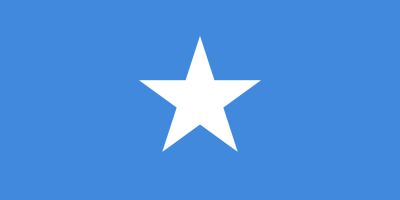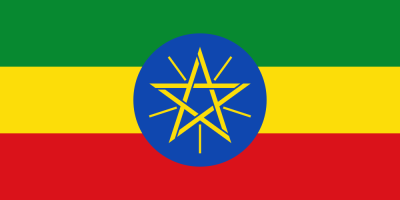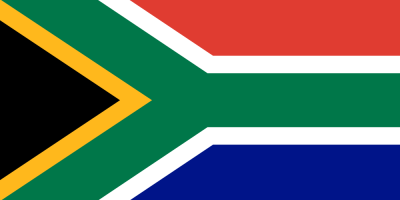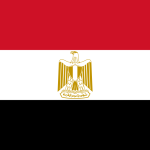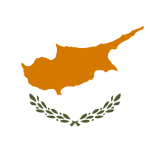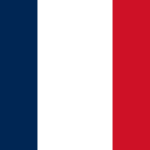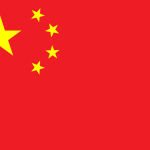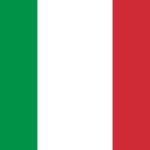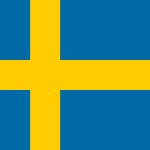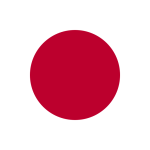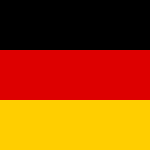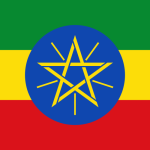Algerian flag color codes requires accurate color reproduction. This article provides the official Algeria flag color codes across various formats for digital and print design. Whether you need the green and white tones of the Algerian flag for web design, print projects, presentations, apparel, or any other media, refer below for the specific PANTONE Matching System, HEX, RGB, HSL, CMYK, HWB, and NCOL values to accurately match the colors of the iconic Algeria flag. With the precise Algeria flag color codes, you can incorporate the spirit of Algeria into your visual designs through the symbolic green and white. Use this comprehensive guide to the Algeria flag color codes in HTML HEX, RGB, PANTONE, HSL, CMYK, HWB, and NCOL formats.
Table of Contents
What are the colors of Algeria flag?
The national flag of Algeria consists of two equal vertical bands of green and white.
Specifically:
- The hoist side of the flag is green. This green band takes up half of the flag’s width.
- The other half of the flag’s width is a white band on the fly side.
- The colors green and white have been used on Algerian flags since independence in 1962.
The meanings behind the colors are:
- Green represents Islam and the prosperity of the nation. It is also symbolic of nature and life.
- White stands for peace and purity.
So in summary, the two main colors of the Algerian flag are green and white in equal vertical bands. The bold green and white make for a simple yet distinguishable design.
Algeria flag color codes & Color Names:
GREEN
| Color Model | Value |
|---|---|
| HTML | #007A4E |
| HEX | #007A4E |
| RGB | rgb(0, 122, 78) |
| Pantone | 3425 C |
| HSL | hsl(150, 100%, 24%) |
| CMYK | 100%, 0%, 36%, 52% |
| HWB | hwb(150, 0%, 52%) |
| NCOL | Green |
WHITE
| Color Model | Value |
|---|---|
| HTML | #FFFFFF |
| HEX | #FFFFFF |
| RGB | rgb(255, 255, 255) |
| Pantone | N/A |
| HSL | hsl(0, 0%, 100%) |
| CMYK | 0%, 0%, 0%, 0% |
| HWB | hwb(0, 0%, 0%) |
| NCOL | White |
RED
| Color Model | Value |
|---|---|
| HTML | #CE1126 |
| HEX | #CE1126 |
| RGB | rgb(206, 17, 38) |
| Pantone | 186 C |
| HSL | hsl(357, 84%, 45%) |
| CMYK | 0%, 92%, 81%, 19% |
| HWB | hwb(357, 0%, 19%) |
| NCOL | Red |
What is the meaning of colors in the Algeria flag?
The two colors of the Algerian flag hold cultural symbolism:
Green – The green band represents Islam and the majority Muslim identity of Algeria. Green is considered a sacred color in Islam. The color also signifies prosperity, nature, and fertility.
White – The white band symbolizes peace, harmony, and purity. It expresses the desire for tranquility.
In summary:
- Green = Islam, prosperity, nature
- White = peace, purity
Together, the green and white reflect Algeria’s Islamic heritage and national aspirations for peace and prosperity.
Some additional details on the meanings:
- Green recalls the banners used during the Algerian war for independence from France. It reinforces Algeria’s ties to other Muslim nations.
- White connects to the white uniforms worn by Algerian Emir Abdelkader’s army during early resistance fighting against the French.
So the green and white bands carry deep cultural and historical significance for the Algerian people and nation. The symbolic colors connect the modern Algerian flag to the country’s long struggle for independence.
Explore More Flag Colors:
FAQs: Frequently Asked Questions:
Is Algeria French or Arabic?
Algeria is a country with a diverse linguistic and cultural heritage. The official languages of Algeria are Arabic and Berber (Tamazight). Arabic is the predominant language used in government, education, and official communications. Additionally, Berber languages, spoken by the Berber (Amazigh) population, also have official status.
What is Algeria known for?
Here are some aspects for which Algeria is well-known:
Sahara Desert: A significant portion of Algeria is covered by the Sahara Desert, making it one of the country’s most distinctive features. The stunning landscapes of sand dunes, oases, and rock formations attract tourists and adventurers.
Historical Sites: Algeria has a rich history, and it is home to several UNESCO World Heritage sites, including the ancient Roman city of Timgad, the archaeological site of Djémila, and the casbah (old town) of Algiers.
Tassili n’Ajjer National Park: Another UNESCO World Heritage site, Tassili n’Ajjer is known for its prehistoric rock art and dramatic landscapes. It provides insights into the region’s ancient human history and geological formations.
Kasbah of Algiers: The Kasbah of Algiers is a historic district with narrow streets, traditional houses, and historic architecture. It is a UNESCO World Heritage site and a symbol of the city’s cultural heritage.
Beautiful Beaches: Algeria has a Mediterranean coastline with picturesque beaches. Destinations like Tipaza and Sidi Fredj are known for their sandy shores and turquoise waters.
Roman Ruins: The country has well-preserved Roman ruins, such as those at Timgad, Djémila, and Timgad. These archaeological sites showcase the ancient Roman presence in North Africa.
Hoggar Mountains: The Hoggar Mountains in the southern part of Algeria offer breathtaking landscapes, including volcanic peaks and deep canyons. The region is popular among hikers and nature enthusiasts.
Algerian Cuisine: Algerian cuisine reflects a blend of influences, including Berber, Arab, and French. Dishes like couscous, tagines, and various pastries are enjoyed in Algerian households and restaurants.
Is Algeria developed country?
Algeria is classified as a developing country. It is important to note that the development status of a country is a complex and multifaceted concept that considers various economic, social, and human development indicators.
Algeria has significant natural resources, including oil and gas, which have played a crucial role in its economic development. However, the country faces challenges such as economic diversification, high unemployment rates, and a reliance on hydrocarbon exports.
Do I need a visa for Algeria?
visa requirements for entering Algeria vary depending on your nationality. Algeria has a visa policy that outlines specific entry requirements for different countries. It’s essential to check the most up-to-date information, as visa regulations can change.
Citizens of certain countries may be exempt from obtaining a visa for short stays, while others may need to apply for a visa in advance. Visa requirements can also vary based on the purpose of your visit, such as tourism, business, or study.
Is Algeria a rich country?
Algeria is considered to be a country with substantial natural resources, particularly in the form of oil and natural gas. The hydrocarbon sector has historically been a significant contributor to Algeria’s economy, providing a substantial portion of government revenue and export earnings.
What is the religion of Algeria?
The predominant religion in Algeria is Islam. The majority of the population in Algeria identifies as Muslim, with Sunni Islam being the main branch followed. Islam plays a significant role in the culture, traditions, and daily life of Algerians.
Algeria is known for its historical and cultural ties to Islam, and the religion has influenced various aspects of Algerian society. Mosques, Islamic art, and traditions are integral parts of the country’s cultural heritage.
Why is Algeria not a tourist country?
there are several factors that have contributed to the relatively low levels of tourism in Algeria:
Security Concerns: Algeria has experienced periods of political instability and security challenges, including a civil conflict in the 1990s. While the situation has improved, concerns about security persist, impacting the perception of the country as a safe destination.
Visa Restrictions: Algeria has visa requirements for most visitors, and the application process can be perceived as complex. Stringent visa policies can discourage potential tourists.
Limited Tourism Infrastructure: The tourism infrastructure in Algeria is not as developed compared to some other countries. Insufficient facilities, services, and transportation options may impact the overall tourist experience.
Promotion and Marketing: Algeria has not actively marketed itself as a tourist destination on the international stage. Effective promotion and marketing strategies are crucial for attracting tourists, and the lack of such efforts has contributed to low visibility.
Perceived Lack of Tourist Appeal: Algeria may not be as well-known globally as a tourist destination compared to some neighboring countries. A combination of limited promotion, lack of awareness, and concerns about security may contribute to the perception that the country does not offer significant tourist appeal.
Cultural and Language Barriers: Cultural and language differences may pose challenges for some tourists, particularly those unfamiliar with Arabic or French, the official languages.
Why do tourists visit Algeria?
Tourists visit Algeria for various reasons, including:
Historical Sites: Algeria is home to numerous historical sites and archaeological treasures. Ancient Roman ruins, such as those at Timgad and Djémila, showcase the country’s rich history. The Casbah of Algiers, a UNESCO World Heritage site, is a historic urban area with narrow streets and traditional architecture.
Sahara Desert: The Sahara Desert covers a significant portion of Algeria, and travelers are drawn to its breathtaking landscapes, including vast sand dunes, oases, and unique rock formations. The Tassili n’Ajjer National Park, a UNESCO World Heritage site, features prehistoric rock art and stunning desert scenery.
Cultural Heritage: Algeria has a diverse cultural heritage influenced by Arab, Berber, and French elements. Visitors can explore traditional markets, attend cultural festivals, and experience the warmth of Algerian hospitality.
Islamic Architecture: The country is home to beautiful mosques and Islamic monuments, showcasing the architectural and artistic contributions of Islamic civilization. The Great Mosque of Algiers, also known as the Djamaa El Djazair, is one of the largest mosques in Africa.
Mediterranean Coast: Algeria’s Mediterranean coastline offers picturesque beaches and coastal landscapes. Cities like Algiers and Oran provide opportunities for cultural exploration, waterfront activities, and relaxation.
Hiking and Nature Exploration: The diverse landscapes of Algeria, including the Hoggar Mountains and national parks, attract outdoor enthusiasts. Hiking, trekking, and exploring nature reserves are popular activities.
Berber Culture: The Berber (Amazigh) population in Algeria has a distinct cultural identity, and travelers interested in indigenous cultures can experience Berber traditions, music, and festivals.
Photography Opportunities: The unique and diverse landscapes, historical sites, and vibrant markets in Algeria provide ample opportunities for photographers to capture stunning images.

